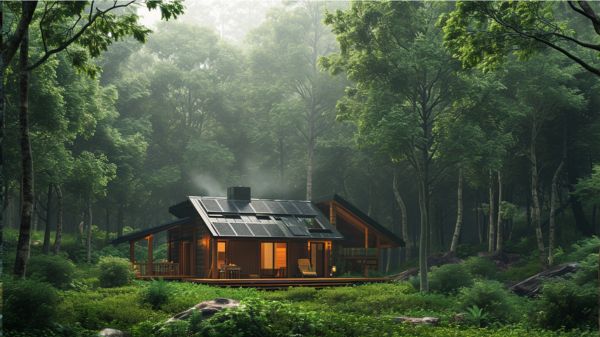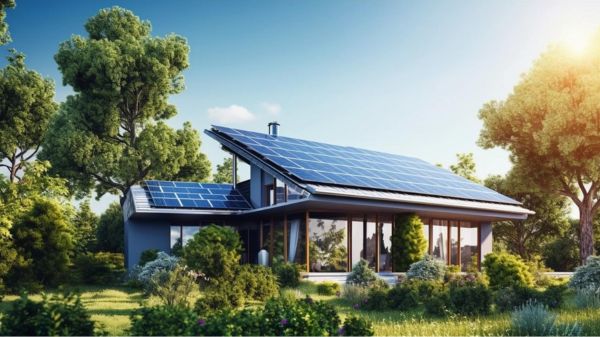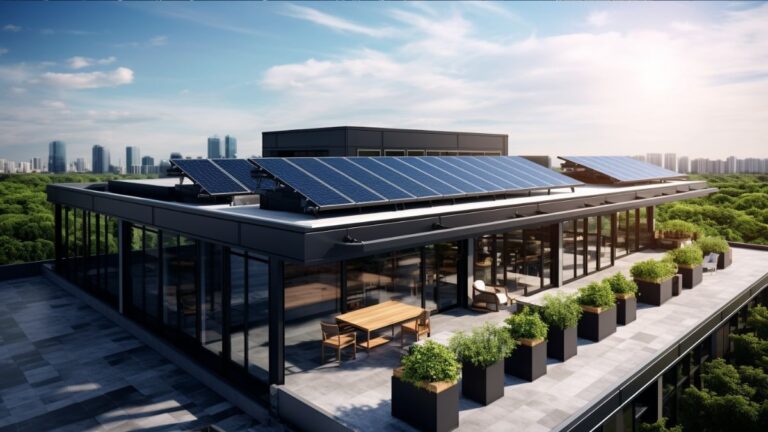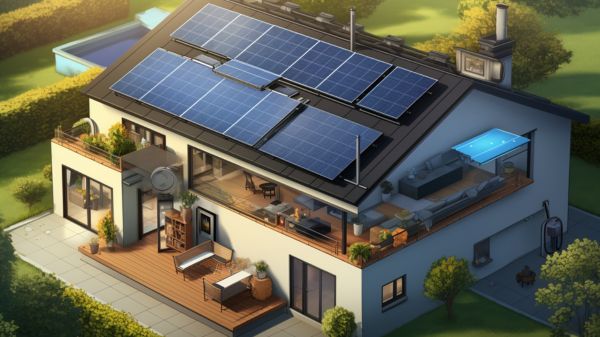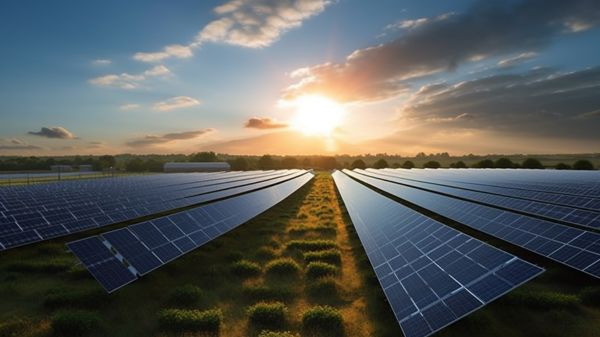Efficient Off-Grid Solar Power System Tips
Picture yourself standing on a sun-drenched hillside, surrounded by nothing but nature’s beauty. You’ve made the decision to embrace a more sustainable lifestyle, and what better way to start than with an off-grid solar power system?
But where do you begin? How can you ensure that your system is not only efficient, but also optimized to meet your energy needs?
In this discussion, we will explore some invaluable tips and tricks to help you navigate the world of off-grid solar power, from panel placement and battery maintenance to energy conservation and system monitoring.
So, get ready to harness the power of the sun and embark on a journey towards energy independence!
Key Takeaways
- Regularly monitor and adjust solar panel placement and orientation for maximum efficiency and output.
- Ensure efficient battery capacity and maintenance by regularly checking water levels, cleaning terminals, and adhering to standards and regulations.
- Maximize energy efficiency and output by monitoring and maintaining solar charge controllers, cleaning and maintaining solar panels, and protecting the system from extreme weather conditions.
- Consider backup power options and factors such as investing in a reliable auto-start backup generator, choosing a battery suited to the local climate, and oversizing the PV array to optimize battery performance.
Solar Panel Placement and Orientation
To maximize the efficiency and output of your off-grid solar power system, carefully consider the placement and orientation of your solar panels.
Proper solar panel placement and orientation are crucial for harnessing the maximum amount of solar energy. When determining the placement of your solar panels, it’s important to consider the path of the sun throughout the day. To ensure optimal sunlight exposure, orient your solar panels towards the south in the northern hemisphere or north in the southern hemisphere.
This positioning allows the panels to receive the most sunlight, maximizing energy production. Additionally, it’s essential to position the solar panels at an angle to maximize sunlight absorption. The angle should be adjusted based on your location and energy needs.
Keep in mind that obstructions such as trees, buildings, or other structures can cast shadows on the panels, reducing their efficiency. Regularly monitor and adjust the placement and orientation of your solar panels to account for seasonal changes in the sun’s path.
Battery Capacity and Maintenance
Regular maintenance and proper battery capacity are essential for maintaining the health and longevity of your off-grid solar power system. Here are some tips to help you ensure efficient battery capacity and maintenance for your off-grid solar system:
- Regularly check battery water levels and clean terminals: This will help maintain the overall health of your batteries and ensure reliable power supply. Use distilled water to top off low water levels and keep the battery area clean to prevent corrosion and maximize battery capacity.
- Consider local climate conditions: Different batteries perform differently in varying environmental conditions. It’s important to choose a battery that’s suited to your specific climate for optimal performance and longevity.
- Adhere to battery standards and regulations: Off-grid solar systems have specific requirements and safety standards for battery installation. It’s crucial to follow these guidelines to ensure safety and compliance.
- Monitor battery status: Regularly monitor your battery’s status using a battery monitor. This will help you identify potential issues and maintain optimal energy usage, preventing any unexpected energy consumption.
Efficient Energy Usage and Conservation
Maximizing the efficiency of energy usage and conservation is crucial for maintaining the health and longevity of your off-grid solar power system. Since solar energy is a renewable energy source, it’s important to make the most out of the energy produced by your system.
To ensure efficient energy usage, it’s essential to monitor and maintain your solar charge controllers. These devices regulate the flow of electricity from the solar panels to the batteries, preventing overcharging and ensuring proper operation.
Regularly cleaning and maintaining your solar panels is also important to ensure optimal energy output. By keeping them free from dirt, dust, and debris, you can maximize the amount of sunlight absorbed and converted into electricity.
Additionally, regularly maintaining your solar batteries is crucial. Check the water levels, cleanliness, and corrosion on the terminals to ensure their efficiency and longevity.
Another way to maximize energy efficiency is to protect your system from extreme weather conditions. Securely anchoring panels and protecting cables and connections from damage will help maintain the overall health and efficiency of your off-grid solar system.
Backup Power Options and Considerations
Consider investing in a reliable auto-start backup generator to ensure uninterrupted power supply during low solar input or unexpected events. This backup power option is crucial for an off-grid solar power system, providing you with a reliable source of electricity when your solar panels aren’t generating enough energy.
Here are some considerations to keep in mind:
- Avoid hybrid inverters as they may lack the auto generator start function, making them unsuitable for off-grid applications.
- Oversize your PV array to optimize battery performance and generate surplus electricity during peak sunlight hours. This will help ensure that your batteries are fully charged and ready to provide backup power when needed.
- Choose a battery suited to the local climate. With falling prices and greater capacity, lithium-ion batteries have become a popular choice for off-grid systems. They offer high energy density and are more resistant to temperature fluctuations.
- Comply with battery standards and regulations for off-grid systems. It’s important to ensure the safety of your system and meet any regulatory requirements that may be in place.
Monitoring and Optimizing System Performance
To ensure optimal performance of your off-grid solar power system, it’s essential to regularly monitor and optimize its energy output. Monitoring your system allows you to identify any drop in energy production and take necessary measures to rectify it. One way to do this is by using a battery monitor, which tracks the battery status and energy use, giving you valuable information for system optimization.
In addition to monitoring, there are several simple yet effective tips that can significantly reduce your energy consumption and increase energy production. Implementing energy-efficient appliances and solar water heating can greatly contribute to maximizing your system’s performance. Regular maintenance of your solar panels is also crucial to ensure they’re clean and functioning optimally.
Energy storage is another aspect that requires careful consideration. Investing in battery storage allows you to store excess solar energy produced during the day for use during the night or during power outages. Battery banks offer numerous benefits, including uninterrupted power supply and energy independence.
Staying updated with advancements in solar technology is essential for optimizing your off-grid solar power system. The solar industry has seen significant developments in recent years, offering more efficient and environmentally friendly solutions. By keeping yourself informed, you can make informed decisions that will enhance your system’s performance and reduce electricity bills.
Monitoring and optimizing your off-grid solar power system is crucial for sustainable living and enjoying the benefits of clean and renewable energy. By following these tips and regularly monitoring your system’s performance, you can ensure that your off-grid solar power system operates at its highest efficiency.
Conclusion
Congratulations! You have successfully navigated the complexities of creating a more sustainable off-grid solar power system. With careful consideration of solar panel placement, battery capacity, efficient energy usage, and backup power options, you’re well on your way to achieving optimal system performance.
So go ahead, bask in the irony of how your quest for energy independence has ironically brought you closer to a more sustainable future. Keep up the great work!
